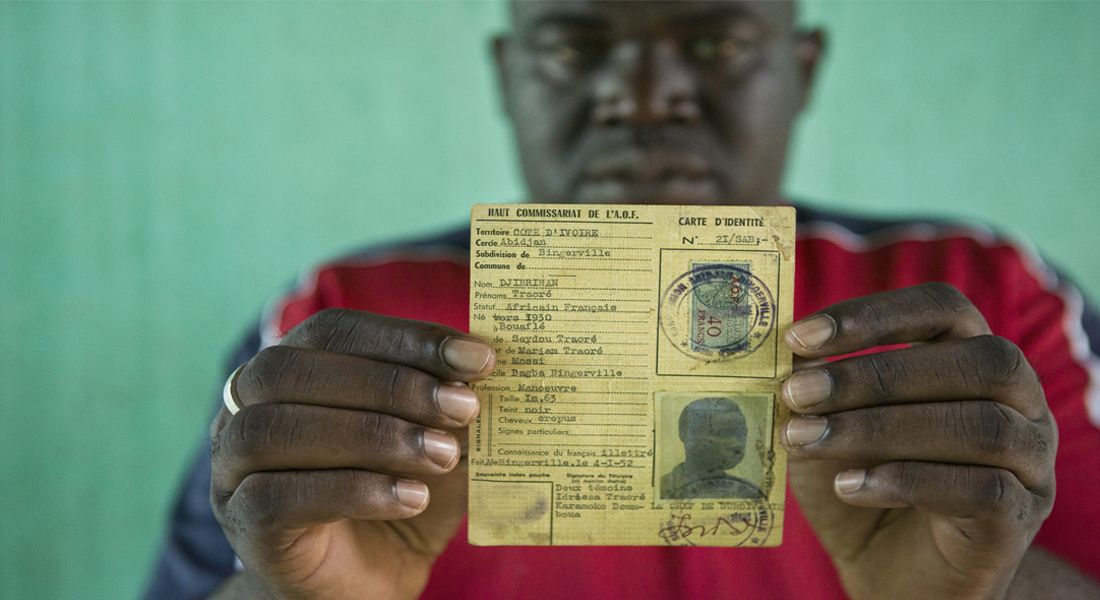Call for Submissions: CERTIZENS West Africa Regional Workshop
The CERTIZENS Research Project invites submissions for a workshop in Accra, Ghana, from 7-9 April 2025. Abstracts must be submitted by midnight on Monday 27 January.

We invite submissions for CERTIZENS West Africa Regional Workshop in Accra, Ghana, from 7-9 April 2025, on
Changing ID Systems in West Africa: Policies, Practices and Contestations in the Reshaping of States and Citizens
Systems of documenting and distinguishing between citizens have long histories across the globe, each with their context-specific manifestations as well as some borrowing and adopting of ideas and practices across space and time. Such systems, and the different forms of identification documents (IDs) they have generated, are key to the legitimating power of various authorities to recognize and validate (or refuse and exclude) certain populations. While these systems existed well before the establishment of modern-day states, in the contemporary world control over the rules and infrastructures of identification, registration and certification are key to the relationship between states and citizens. In different parts of the continent, whether in the early decolonial moments or later post-colonial periods, African states have necessarily grappled in different ways with the common challenges of nation-building, governance, security, and development, where a focus on identification has played a greater or lesser role. In more recent years, however, there has been a mushrooming across Africa, including in West Africa, of national identification reforms including the introduction of new (formal and informal) categories of citizenship, identification authorities and bureaucracies, and technologies of registration and verification – be these related to national IDs, birth and death certificates, voter ID cards, passports and so on. Such reforms and transformations have been driven by both external pressures and trends (such as the Sustainable Development Goal 16.9 focused on ‘legal identity for all’, growing digitization everywhere, and global discourses of securitization), and by specific internal political and political-economic dynamics.
The effects have been profound on multiple levels, visibly and invisibly enhancing some arenas and actors while excluding or devastating others. The complex array of consequences have generated varied responses by the diversity of affected actors, be these among (often competing) state authorities, from different political parties, from different groups of citizens and civil society organizations, from scholars and policy analysts, from private sector actors, and so on.
This workshop is interested in bringing together scholars based in the West Africa region working on such changing ID ecosystems and their effects on both states and citizens and the relationship between them. (This complements a similar workshop held in Kampala in January 2024 focused on East Africa.) Preference will be given to younger/early career scholars (minimum PhD or soon-to-deliver) as well as some more established scholars. As space and funding is limited, CERTIZENS has travel grants for only 10 successful applicants. Any who are in a position to self-fund flights, hotel and some meals are welcome to indicate this when applying. This might increase the numbers accepted to participate.
Proposals for papers on such themes as those listed below are invited for submission. The application should include an abstract of maximum 200 words, institutional location, position and contact details. The themes include:
- Promises, realities and paradoxes of changing national ID registration systems
- Dynamics and effects of new digital technologies on differentiated citizens
- Historical perspectives on earlier forms of identification, registration and certification
- The politics of citizen-making and unmaking through identity documentation
- The relationship between IDs, mobility, migration and displacement
- Challenges related to bureaucracies of identification, registration and certification
- Global policy effects on national systems of identification, registration and certification
- Citizen contestations in relation to changed/changing national systems of identification, registration and certification
- Potential futures emerging from new national systems of identification, registration and certification systems
Abstracts must be submitted by midnight on Monday 27 January to: Professor Amanda Hammar (aha@teol.ku.dk), and Dr Kojo Opoku Aidoo (koaidoo@ug.edu.gh).
Scholars whose papers have been accepted will be informed by Monday 10 February 2025, following which arrangements will begin to be made for travel to Accra for the Workshop. Successfully selected presenters based in the region will have the following costs covered by CERTIZENS Ghana:
- Return flights to Accra
- Transport between Accra Airport and the workshop venue
- Three nights of accommodation and full board (6, 7, 8 April 2025)
Please note: no per diems will be provided.
A draft of the paper will need to be submitted to the Workshop convenors by Friday 28 March 2025. This is to facilitate sharing and robust discussion.
The Workshop is being co-convened by the collaborating partners within the CERTIZENS Project, and is being jointly hosted by the CERTIZENS Ghana Team led by CERTIZENS Ghana Project Coordinator, Dr Kojo Opoku Aidoo from the Institute of African Studies, University of Ghana, and by the overall CERTIZENS Project Leader, Professor Amanda Hammar, Centre of African Studies, University of Copenhagen.
We look forward to an exciting set of conversations at this Workshop, as well as future networking and collaborations related to this crucial knowledge field.
Amanda Hammar
CERTIZENS Project Leader
Professor of African Studies
Centre of African Studies
University of Copenhagen
Kojo Opoku Aidoo
CERTIZENS Ghana Project Coordinator
Institute of African Studies
University of Ghana
Legon Accra
